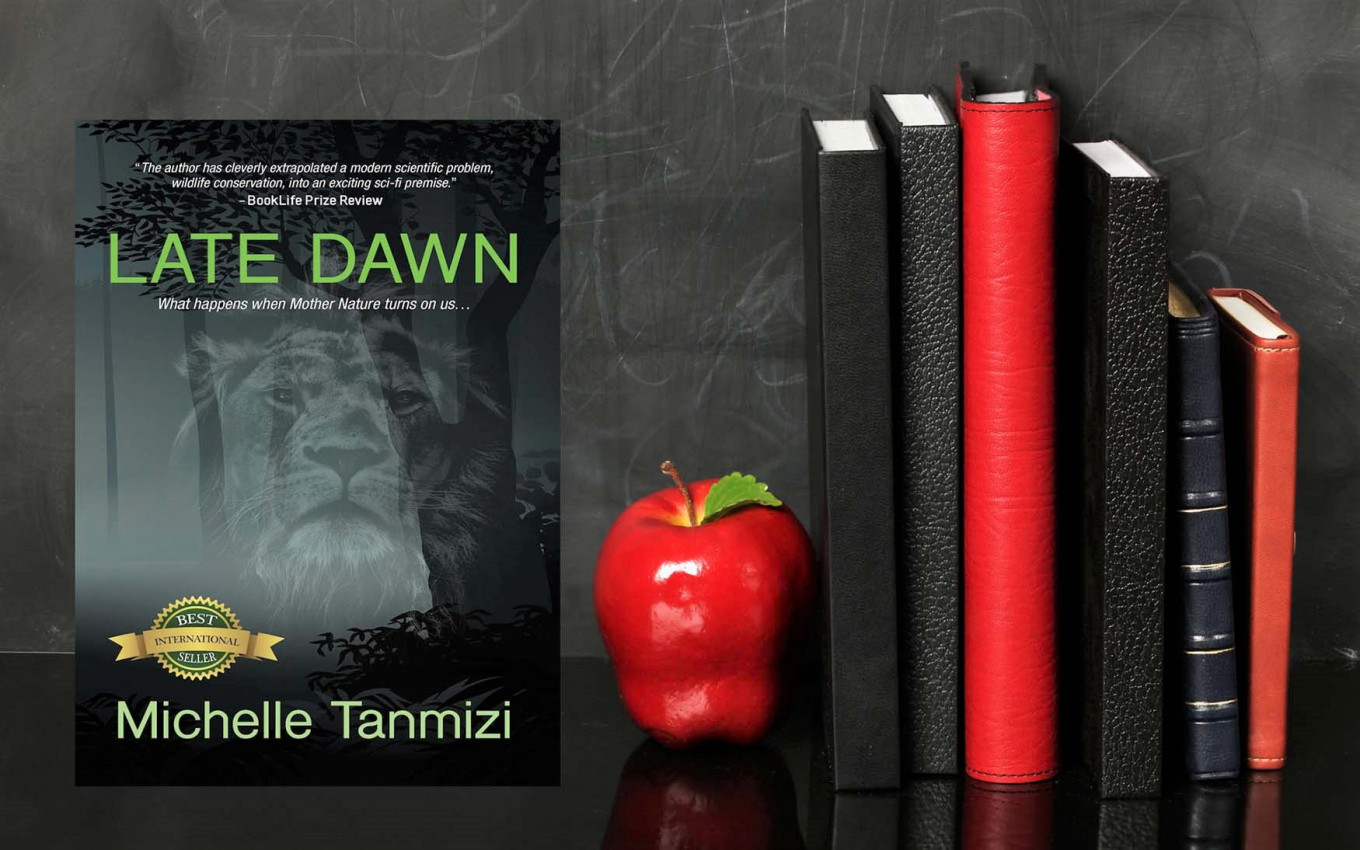Popular Reads
Top Results
Can't find what you're looking for?
View all search resultsPopular Reads
Top Results
Can't find what you're looking for?
View all search resultsMichelle Tanmizi: On living a dystopian reality
Indonesian-born Singaporean author Michelle Tanmizi shares her dystopian visions and experiences living in a lockdown during the pandemic.
Change text size
Gift Premium Articles
to Anyone
The coronavirus outbreak, which has partly been driven by habitat destruction and trade, feels so dystopian.
Take a look at the lockdown measures that have forced people across the world to stay confined in their homes. In Singapore the policy is called the circuit-breaker, in Indonesia it is referred to as large-scale social restrictions (PSBB), which brings to mind George Orwell’s notion of newspeak in his 1949 novel 1984.
The pandemic has also made many individuals turn to virtual platforms to have social interactions, where instead of gathering in the same place, we have our faces popping up in small boxes on our computer screen. Aren’t we afraid of Big Brother watching and listening? And what about the possibility of totalitarian regimes emerging out of the pandemic?
Such issues were among those raised during a Jakarta-based virtual book club called Baca Rasa Dengar (Read Sense and Listen) on April 18 in Jakarta, joined by about 18 participants from Indonesia and Japan to discuss the concept of dystopia.
“In dystopian novels, the government tells you exactly what to do and you have to obey it. For instance, if you dare to get out during the lockdown period in certain areas, you can get fined or worse, go to jail. Then, there is chaos due to a lack of basic needs. Think of the toilet paper fights [in Sydney, Australia], or the lootings that have already happened in the United States,” said Indonesian-born Singaporean author Michelle Tanmizi, the book discussion’s guest speaker.
The current situation eerily replicates aspects of her 2019 dystopian novel Late Dawn (Hasmark Publishing)
Her novel is set in 4848, when habitats have become scarce due to human intrusion and to survive, the animals evolve into giants and take their revenge on humans by attacking them.
Trying to wipe these giants off the Earth, these humans create a virus that has ultimately mutated to infect humans, inducing Ebola-like symptoms, where people bleed out of their eyeballs.
“I was inspired to write the novel in about 2003 or 2004, upon watching lots of documentaries of the declining wildlife habitat and resultant animal attacks,” Tanmizi told the The Jakarta Post in a video call interview.
However, she was too busy taking care of the Zama International wellness center, of which she was the managing director, cofounder and owner in Hong Kong. The center offers different kinds of wellness services, even psychic readings and mediums who can reportedly see things that are unseen by average people.
“Many people who came to have readings there are youngsters eager to know whether their love is reciprocated or whether they will get that particular dream job. There are also people in bereavement who come. Basically, they just needed the mediums to tell them that their loved ones are happy in the afterlife,” the 54-year-old said.
She picked her pen back up in 2018, when she was already semiretired and already had time on her side.
She did her research for the book by Googling as many articles as she could on the topic of climate change, virus mutations, pandemics and wildlife animals.
She said her love affair with dystopian novels first begin when she picked up Canadian author Margaret Atwood’s 1985 novel The Handmaid’s Tale, which, upon reading, turned her into a lifelong Atwood fan.
“Atwood is able to weave story-driven dystopian, science fiction novels without conveying too many technical details, therefore, leaving so many things up to readers’ imaginations. But it is obvious she understands the back story and bigger picture contexts inside and out,” Tanmizi said.
She enjoyed reading literature to marvel at the beauty of their prose, with books by Afghanistan-born American author Khaled Hosseini’s The Kite Runner and A Thousand Splendid Suns among her favorites.
“I also love Indian author Arundhati Roy’s The God of Small Things; I love it so much I’ve read it three times,” she said.
As for speculative science fiction, she recommended Australian author Claire G. Coleman’s Terra Nullius and another one by yet another female Australian author, Krissy Kneen’s An Uncertain Grace.
“I’m not sure whether they will sell Kneen’s book in Indonesia because it is almost pornography,” Tanmizi joked.
Tanmizi was born in Indonesia before she left home at the age of 8 to attend school in Singapore and later went to university in the United States. Afterward, her various work assignments took her to France and Hong Kong before eventually landing her back in Singapore, where she now lives with her 88-year-old mother.
“I find that there are some aspects of the Indonesian life that I can’t assimilate to anymore, for instance, I don’t understand certain jokes and local lingos,” said Tanmizi, who was also invited to take part in Ubud Writers and Readers Festival last year.
“Also, people who have been living for a long time in Indonesia have been used to a certain degree of discomfort,” she added, referring to Jakarta’s notorious traffic and bad road conditions.
Nonetheless, she was happy to connect with her fellow Indonesians, such as through the virtual book club.
“I hope the lockdown will soon be over. I don’t miss socializing as I’m not a social person, but I miss walking and exercising outside, writing in cafés and having my salsa classes. In the meantime, stay happy and stay healthy. That way, your immune system will remain strong, thus preventing the virus from taking you down.” (ste)












